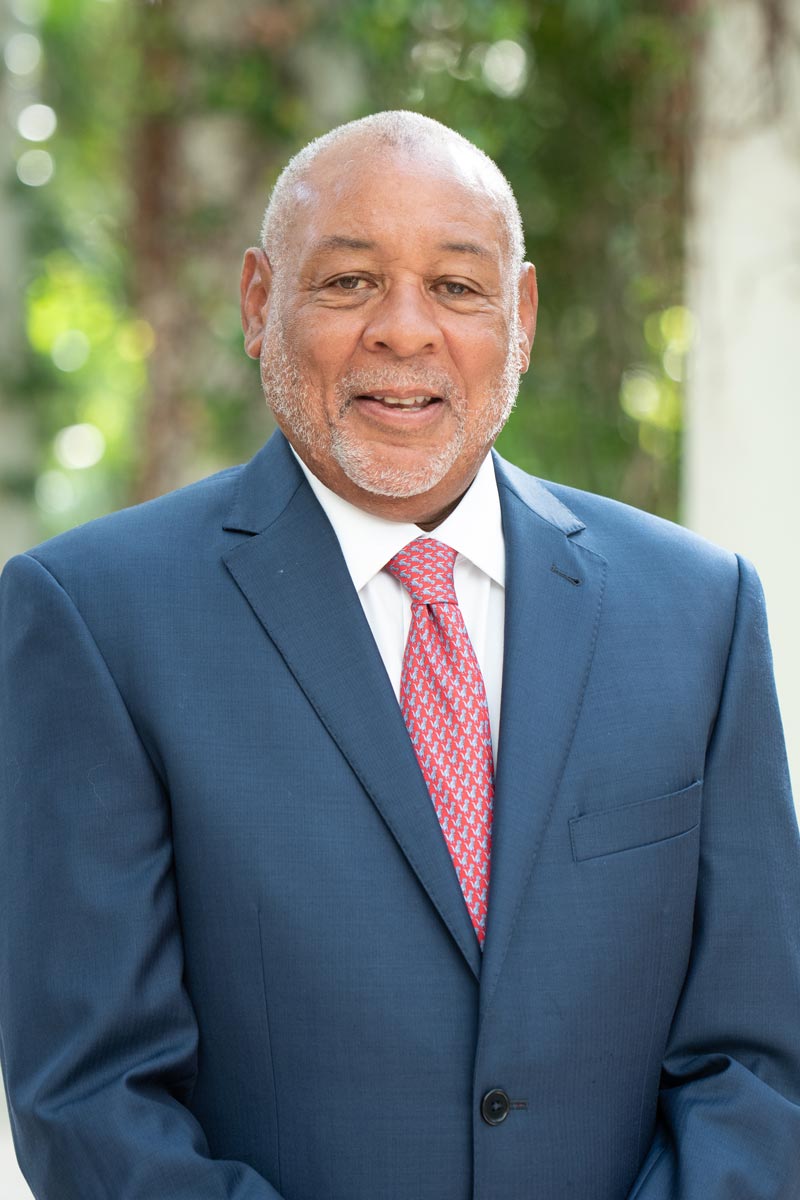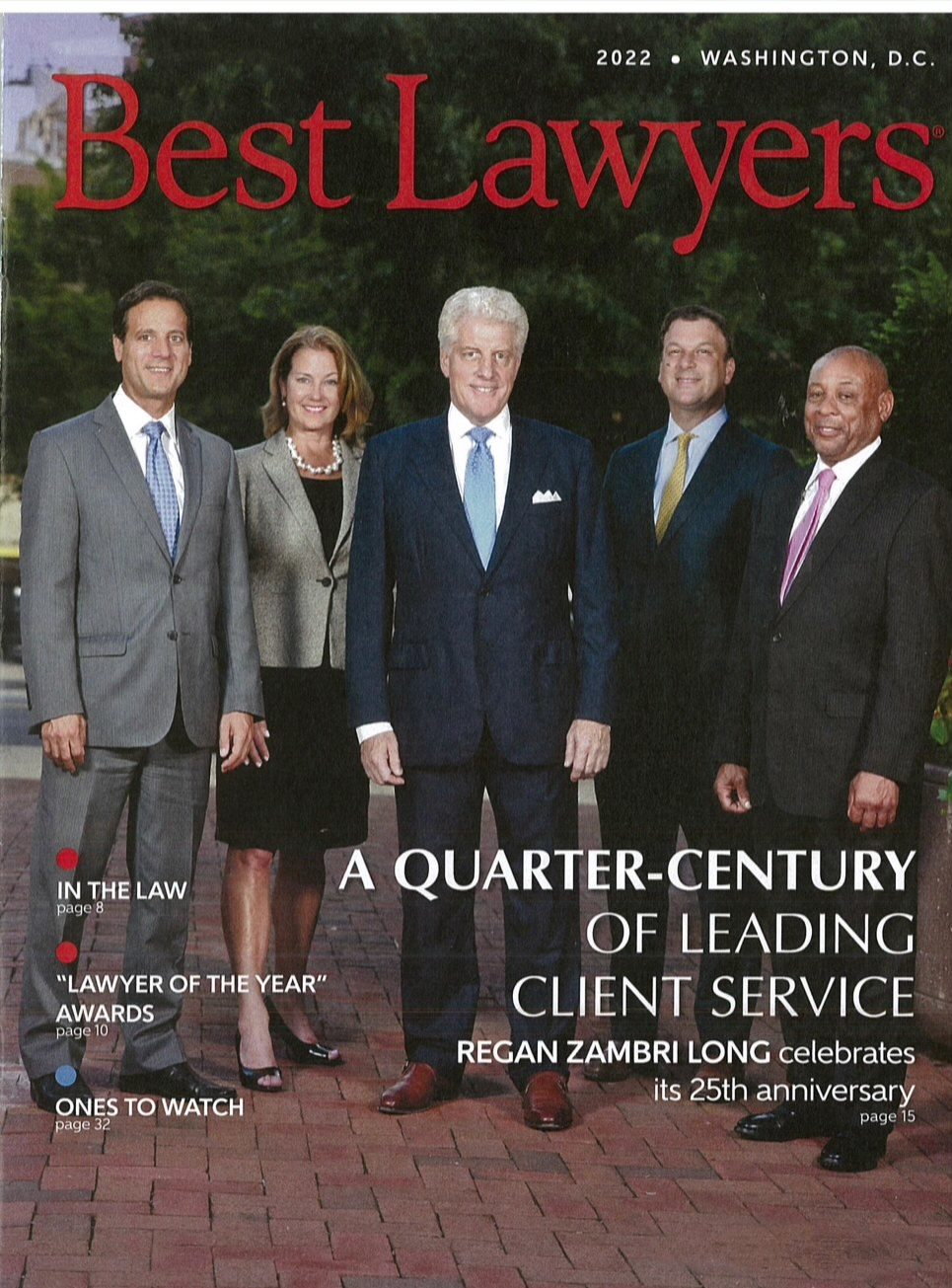The surest way to protect yourself against unfair treatment is to have a basic understanding of your rights. Your civil rights guarantee you equal protection under the law regardless of personal characteristics such as your race or sex. Discrimination is when those rights are violated with the unjust or prejudicial treatment on the grounds of race, religion, age, sex, and other personal characteristics.
Some civil rights cases are clear cut (i.e., a restaurant refuses you service because you are disabled), while other civil rights violations are more difficult to define (i.e., you are unsure if you were passed up for a promotion because of your gender). In either circumstance, if your civil rights were violated, you will need the help of a Regan Zambri Long civil rights attorney.
Contact Us Today to Schedule
A Free Consultation
The attorneys at Regan Zambri Long are known locally and nationally to be fierce defenders of justice. They work tirelessly on behalf of their clients, knowing that their work in the courtroom could affect change in the culture and laws in Washington, DC. Call the Regan Zambri Long civil rights attorneys today for a free consultation. They will guide you through all possible legal options, secure fair compensation, and make sure justice is served.
At Regan Zambri Long PLLC, our legal team is committed to providing legal services to individuals who are dealing with civil rights violations. In the past, our Washington, DC personal injury lawyers have recovered hundreds of millions of dollars in compensation for our clients.
Backed by more than 100 years of combined experience, we have an established reputation for pursuing legal excellence. As our client, you can enjoy peace of mind in knowing that we are protecting your rights from start to finish. We will do everything in our power to secure the maximum compensation you need.

Though many people use civil rights and civil liberties interchangeably, they are different terms. Civil liberties are basic freedoms guaranteed by the United States Constitution to protect U.S. citizens from a tyrannical government. For example, freedom of speech is a civil liberty. Civil rights are legal rights that protect you from unfair treatment and discrimination. For example, the right to employment regardless of your race, age, or gender is a civil right.
To put civil liberties and civil rights into context, let’s take a look at marriage. Marriage is a civil liberty protected by the Constitution. Gay marriage is a civil right. Until 2015, same-sex couples were not allowed to marry. However, in 2015 the Supreme Court ruled that a marriage license could not be denied to LGBTQ couples. Therefore, if you are denied a marriage license because the clerk decides not to issue marriage licenses to anyone, you are being denied your civil liberty. If the clerk denies a marriage license because you are part of an LGBTQ couple, you are being denied your civil right.
The DC Human Rights Act protects 21 different traits and prohibits discrimination in housing, employment, public accommodations, and education institutions. The 21 traits Washington DC protects include:
The following are some of the most common areas in American society where civil rights violations based on race, religion, age, and sex, and others are committed:
Workplace discrimination is a large umbrella and can take on many forms. If your employer commits one of the following actions, based solely on the 21 protected characteristics under DC law, then the employer is violating your civil rights:
Everyone is entitled to a safe working environment regardless of race, religion, gender, or age. If your civil rights were violated in your place of work, contact a civil rights lawyer today.
The Voting Rights Act of 1965 ensures that states and localities cannot block citizens from being able to vote. The law was enacted after the civil rights march in Selma, Alabama. While states historically used laws to prevent minorities from voting, the Voting Rights Act of 1965 protects the voting rights of all U.S. citizens, regardless of skin color or language barriers.
The Fair Housing Act prohibits discrimination from direct providers of housing such as landlords, realtors, banks, lending institutions, and homeowners insurance companies. The act also extends to renters and buyers with service animals. A landlord or seller cannot deny the sale or rent of housing if the person has an assistance animal to alleviate the effects of a disability.
While police officers have the right, as part of their job, to use force when necessary, excessive force is a violation of your civil rights. The Eighth Amendment protects American citizens from the use of excessive force and from cruel and unusual punishment. Police officers have the duty to act in good faith when using force on citizens.
Federal law does not allow facilities that offer food, lodging, gasoline, or entertainment to discriminate against anyone based on race, color, religion, or national origin. The 21 protected characteristics, as written in the DC Human Rights Act, are also protected in public accommodations.
The Americans with Disabilities Act ensures equal opportunities for people with disabilities to access transportation, public accommodations, and employment. Public accommodations – even privately held businesses that are open to the public – must provide ample accessibility to people with disabilities.
Civil rights lawsuits can be quite complicated and difficult to prove. While it is not required for you to have legal counsel by your side, obtaining a civil rights lawyer could be extremely beneficial to your case. Your attorney will act as your legal expert and advocate throughout the case, championing your rights until a settlement or verdict is secured in your favor.
When you hire a civil rights lawyer, you can expect the following:
When your civil rights are violated, the way to pursue justice is a civil claim. The outcome of this claim will be monetary compensation for tangible and intangible losses. Seeking compensation does not trivialize the harm done to you. It is simply the only way the American civil justice system works – it monetizes damages. With this in mind, your Regan Zambri Long civil rights attorney will pursue the following forms of compensation for your case:
Tangible Losses
Intangible Losses
Punitive Damages
Punitive damages are meant to punish bad actors – people who acted in bad faith and willfully committed the violation. This form of compensation is awarded to the victim in hopes to change the behavior of the party or parties who committed the discrimination.

A: The Regan Zambri Long civil rights attorneys work on a contingency basis. This means your lawyer will not charge you an upfront fee for their services. Rather, you will only pay your civil rights attorney if they recover damages for you in your case. In many cases, your lawyer will work in legal fees to the damages being pursued in your case. Contact the Regan Zambri Long civil rights lawyers today to discuss your claim and legal strategy to win a favorable verdict.
A: The Office of Human Rights (OHR) is the Washington DC task force looking to eradicate discrimination and protect human rights for DC residents. If you believe you’ve been discriminated against based on the 21 protected characteristics in DC, then your Regan Zambri Long civil rights attorney will file a complaint with OHR.
A: No, you don’t have to be a Washington DC resident in order to file a civil rights violation complaint with OHR, but the alleged discrimination must have occurred in DC in order to file a complaint.
A: There are certain types of civil rights violations that must have a registered complaint with a state or federal agency before your lawyer can file a private lawsuit in court. For example, if your civil rights were violated in your place of work, then you will need to file a complaint with the Equal Employment Opportunity Commission (EEOC) before you can move forward with the lawsuit. If the EEOC finds that your civil rights have been violated, they will issue a “right to sue” letter that allows your lawyer to proceed with your case.
Speak to your Regan Zambri Long civil rights attorney today about the legal process regarding your specific civil rights claim.
A: The statute of limitations depends on the area in which the alleged discrimination took place. Several federal or state agencies preside over different aspects of public services, employment, housing, etc. For instance, if your civil rights were violated in the area of housing, then you have one year from the date of the alleged discrimination to file a complaint with the U.S. Department of Housing and Urban Development. On the other hand, if you are filing a claim for discrimination in the workplace, you have 180 days from the alleged discrimination to file a claim with the U.S. Equal Employment Opportunity Commission.
Regan Zambri Long civil rights attorneys are experts in U.S. law. They will take care of all the paperwork necessary for your claim – ensuring it is accurate and submitted on time to the proper government agencies. Once the paperwork is complete, your lawyer will discuss legal strategy and how to secure fair compensation for the violation of your civil rights.